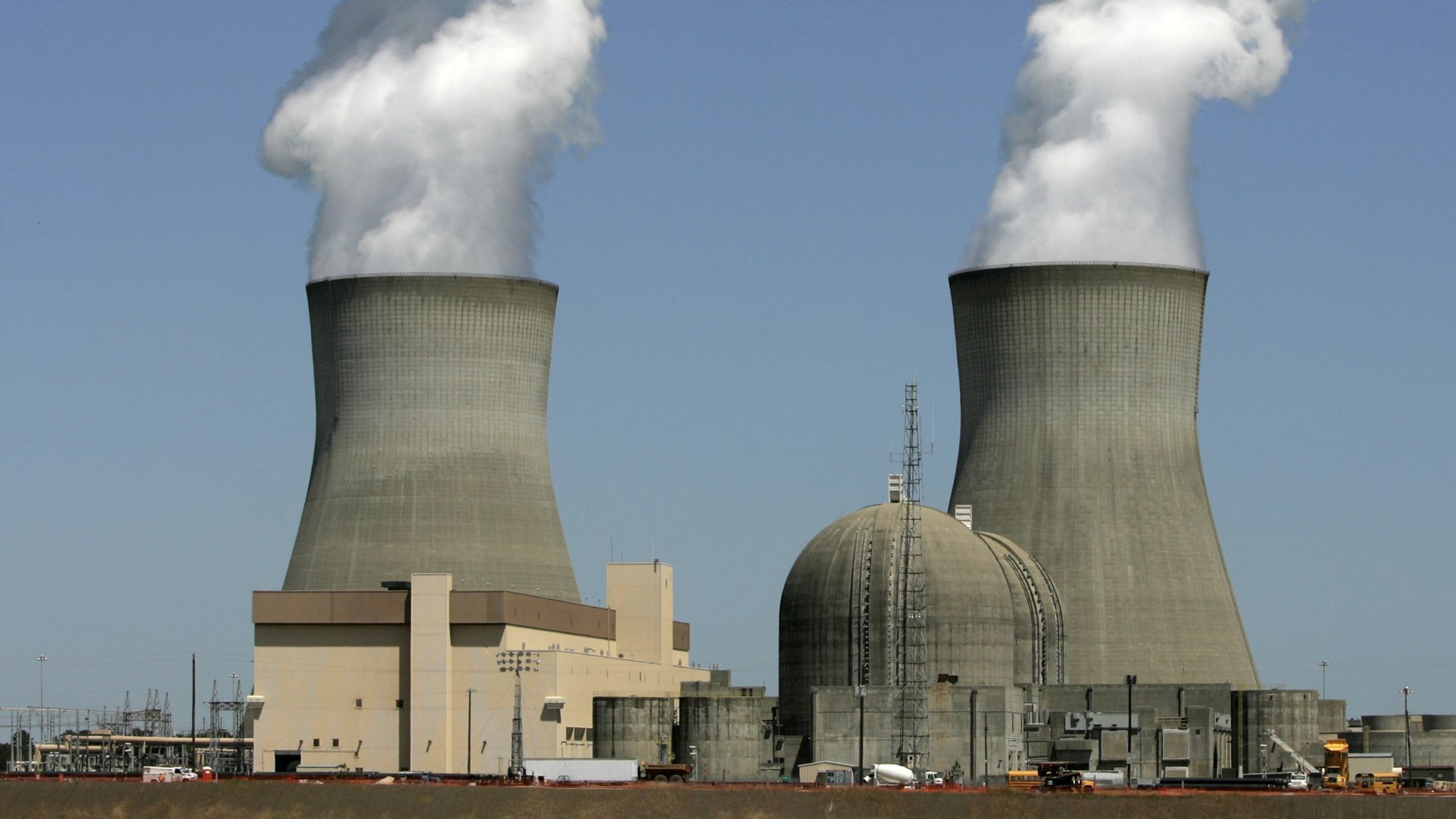Kempner: Georgia nuke backers scramble for reasons to keep going

There’s a mad scramble underway to come up with new reasons for why Georgians should continue to pay billions of dollars to expand nuclear power in the state.
National security! Push back against Russia and China! Healthcare!
Seriously? Yeah, if you believe elected officials, who in the next few days are supposed to get new cost estimates and recommendations from the state’s biggest electric provider.
It seemed like only yesterday when Georgia Power convinced politicians on the Georgia Public Service Commission that a primary reason for expanding Plant Vogtle was because it was the cheapest way to cool our homes, charge our iPhones and keep industry chugging.
Proponents can no longer say that without twitching.
Four years ago, the PSC's outside financial monitor warned that because of cheap natural gas and, to some extent, rising Vogtle costs, "if a decision had to be made today to build a new nuclear project, it would not be justified on the basis of these results."
Those were the good ole days. Because at the time, the same consultant said it still made economic sense to push forward because the cost of pulling out would be greater than the remaining cost of completion.
That no longer appears to be the case. Not since the project piled up more delays and cost overruns. Then the project’s main contractor filed for bankruptcy, dumping more risk and expense on Georgia Power and Vogtle partners representing many Georgia electric membership corporations and city utilities.
This is going to end up costing you. Unless state regulators decide to get tough on Georgia Power and bar it from passing on most of the costs to its ratepayers.
So, yeah, it’s probably going to end up costing you.
Stop making sense
The PSC's outside financial analysts recently concluded that continuing the project likely no longer makes economic sense compared to alternatives like natural gas plants, my colleague Russell Grantham reported earlier this year.
And lately PSC commissioners have veered away from being so insistent that nuclear is the least expensive option for Georgia. Or they only cite operating costs that don’t include the full, mammoth upfront expense of building nuclear. (They rightly point out that natural gas had super volatile prices in the past. However, in recent years natural gas supplies have been booming and prices have remained relatively cheap.)
PSC members also parrot statements by the CEO of Georgia Power’s parent, Southern Company.
"This thing is in our national security interest," Southern's Tom Fanning told Bloomberg recently. "That's why we've preserved the option to go forward."
You might wonder why Georgia ratepayers should pay the bulk of supposedly preserving national security rather than having the federal government do so. Well, there hasn’t been a Washington groundswell to write a blank check that takes most of the nuclear burden off our backs. Maybe they aren’t fully convinced by the “national security” argument.
Along with some PSC members, Fanning continues to stress that nuclear is carbon-free.
It’s a fair point that they’ve focused on for years. But it requires them to do some verbal gymnastics, because they’ve also expressed doubt that carbon from human activity is the primary driver of climate change. And they aren’t under pressure from the Trump administration to cut carbon.
The PSC’s Tim Echols told me it nonetheless still make sense to spend heavily on nuclear because millennials will keep pushing for carbon reductions in the future.
He also offers up several other reasons for sticking with nuclear instead of cutting our financial losses. He listed some in a recent Wall Street Journal op-ed.
The world is turning to Russia and China for nuclear leadership, which is “changing the geopolitical landscape,” Echols wrote in an email. “If the U.S. commercial nuclear declines, U.S. standards for nuclear safety and security will no longer be the international norm.”
Bobby Baker, a former PSC commissioner, says he doesn’t remember the national security argument or fear of Russian or Chinese dominance being raised as issues when PSC commissioners were asked to approve the Vogtle expansion back in the day, when U.S. utilities were already decades into a deep freeze on nuclear construction.
A ‘creative’ argument
Baker called it a “creative” argument. He didn’t vote for the Vogtle project and later, as an attorney, represented a group opposed to it.
Echols, meanwhile, writes that “nuclear reactors produce medical isotopes for imaging and cancer treatments.”
True, but from what I've read, those in the U.S. don't. So I don't know how keeping or adding to those that don't will help.
Echols also points out that many Navy warships use reactor technology.
“Without a U.S. commercial nuclear industry to provide steady employment and training of the nuclear supply chain, it will have an adverse impact on the sustainability of the U.S. nuclear Navy program.”
Actually, a lot of the time it’s the other way around: Utilities often hire Navy-trained nuclear personnel.
I asked the Naval Nuclear Propulsion Program about how crucial the commercial nuclear industry is for the Navy.
“The direct relationship between civilian and naval nuclear reactors is small,” public affairs director Lee Smith emailed me. But some components are supplied by the same companies, “providing some economy of scale for the manufacturer and reduced costs for the Navy.”
Reduced costs for nuclear?
Wouldn’t that be nice for Georgia ratepayers.
Related columns:
Find Matt on Facebook (https://www.facebook.com/mattkempnercolumnist) and Twitter (@MattKempner) or email him at mkempner@ajc.com.
Other Kempner's Unofficial Business columns: http://www.myajc.com/news/opinion/matt-kempner-unofficial-business/j9F7R2mOGomS5FMjfhho2O/
MYAJC.COM: REAL JOURNALISM. REAL LOCAL IMPACT.
AJC Unofficial Business columnist Matt Kempner offers you a unique look at the business scene in metro Atlanta and beyond. You'll find more on myAJC.com, including these columns:
- 50 years later, ATMs try not to show their age
- Uber caves on gratuities. Now what?
- Gwinnett CEO's paycheck has shareholders fuming… again
Never miss a minute of what's happening in local business news. Subscribe to myAJC.com.
In other Business news:



